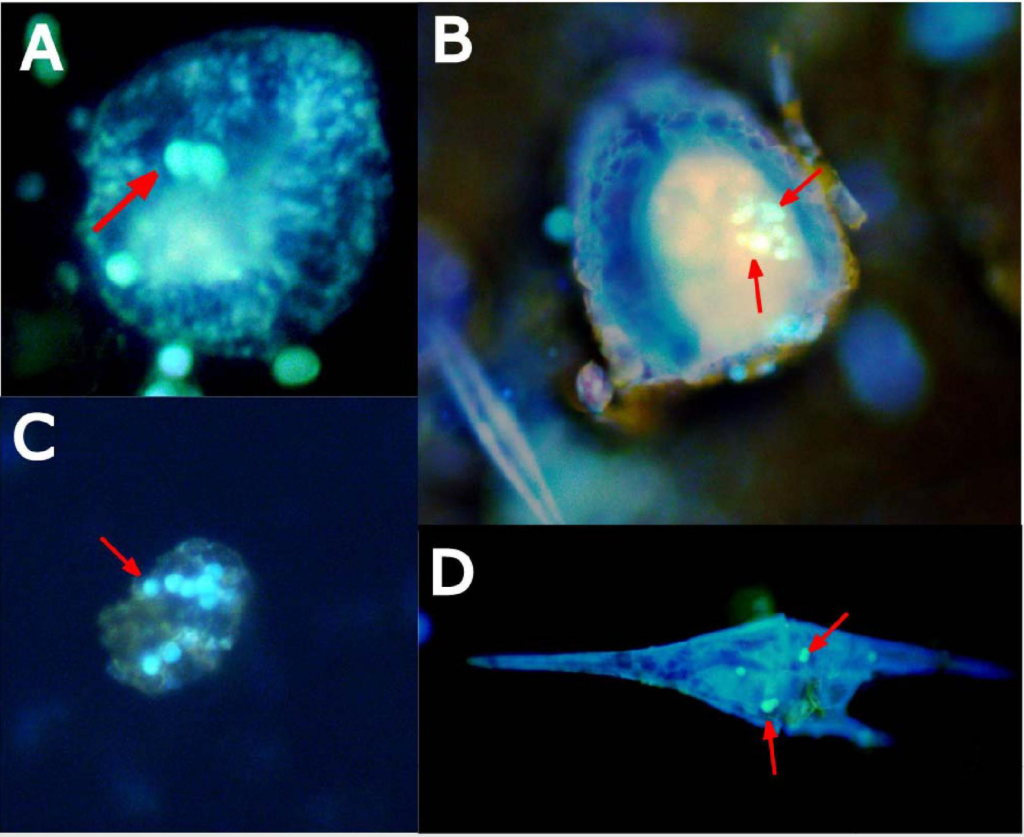Impact of Microplastic Ingestion on Microzooplankton

In laboratory experiments I conducted in 2020, the heterotrophic dinoflagellate species Oxyrrhis marina and Gyrodinium sp. readily ingested polystyrene microplastic (MP) spheres (2.5–4.5 μm). Those that ingested MPs had growth rates reduced by 25–35% over the course of 5 days, resulting in a 30–50% reduction of secondary production. Observations in the coastal ocean showed that phylogenetically diverse taxa ingested microplastic beads, and thus could contribute to trophic transfer of MPs to higher trophic levels. The results of this study may suggest that continued increase in microplastic pollution in the ocean could lead to reduced secondary production of heterotrophic protists due to microplastic ingestion, altering the flow of energy and matter in marine microbial food webs.
Fulfer, V. M. & Menden-Deuer, S. Heterotrophic Dinoflagellate Growth and Grazing Rates Reduced by Microplastic Ingestion. Frontiers in Marine Science8, (2021). https://doi.org/10.3389/fmars.2021.716349